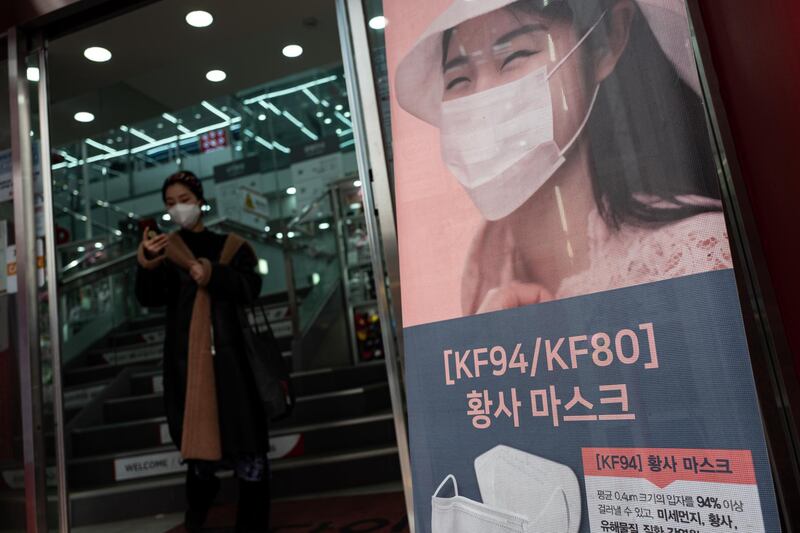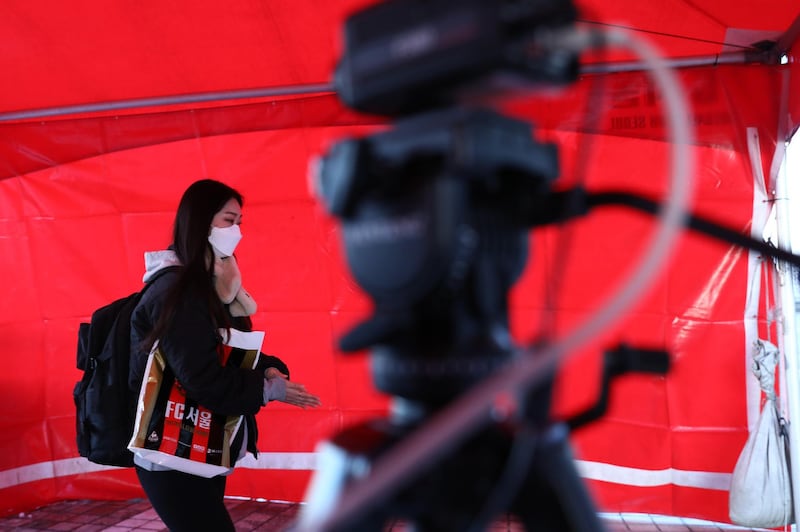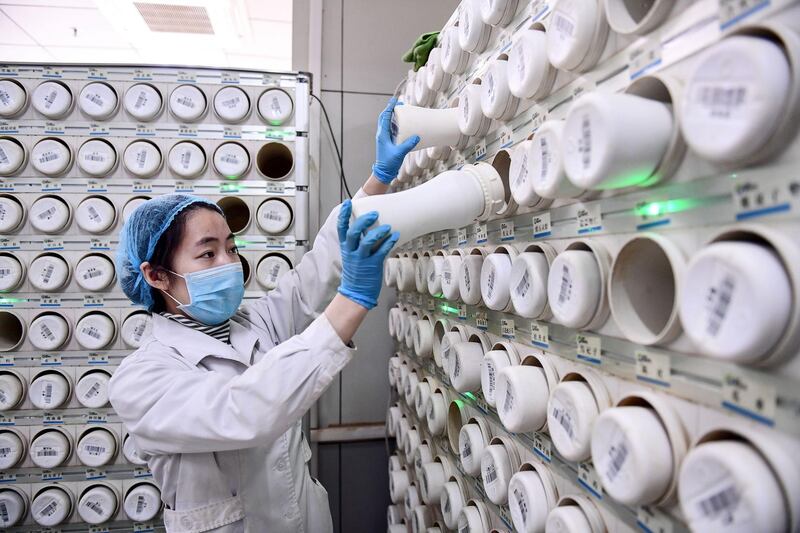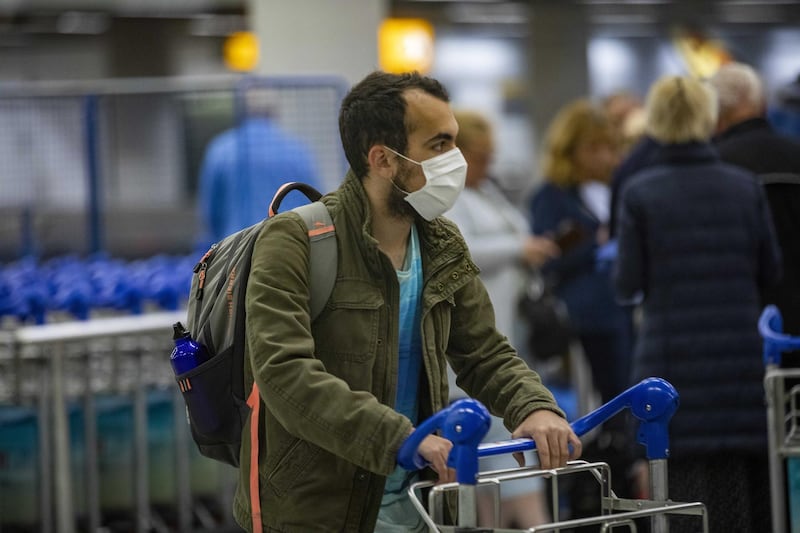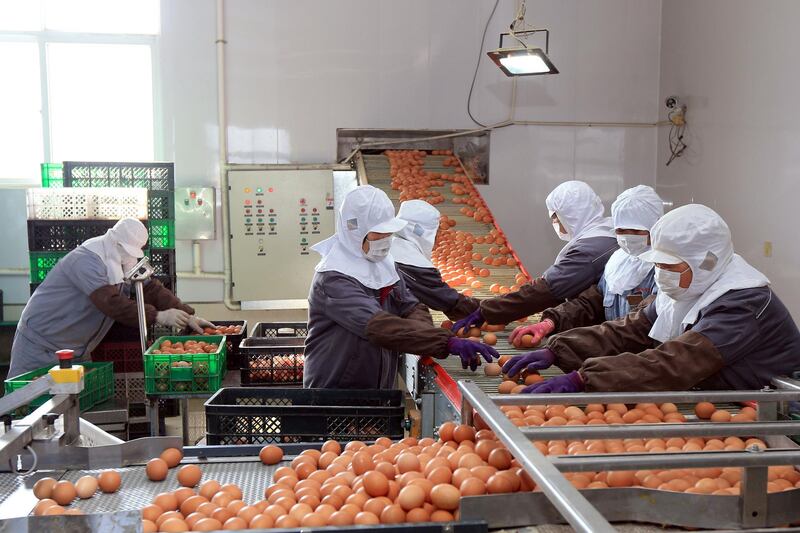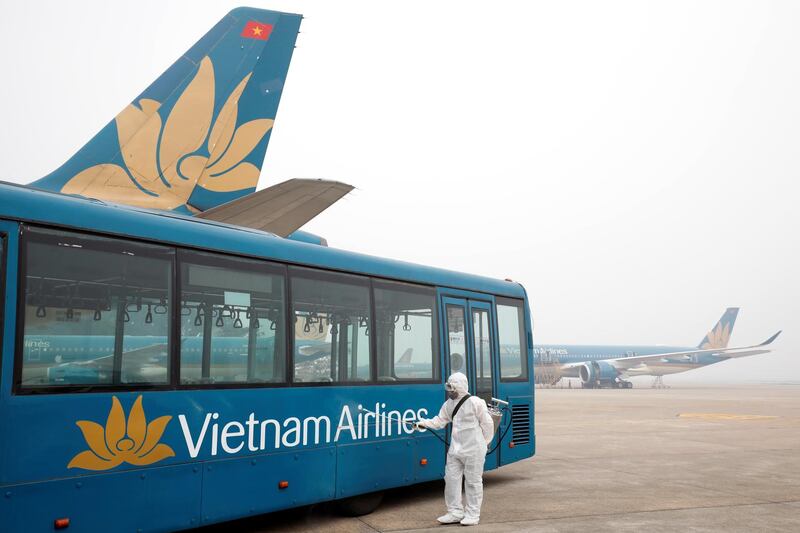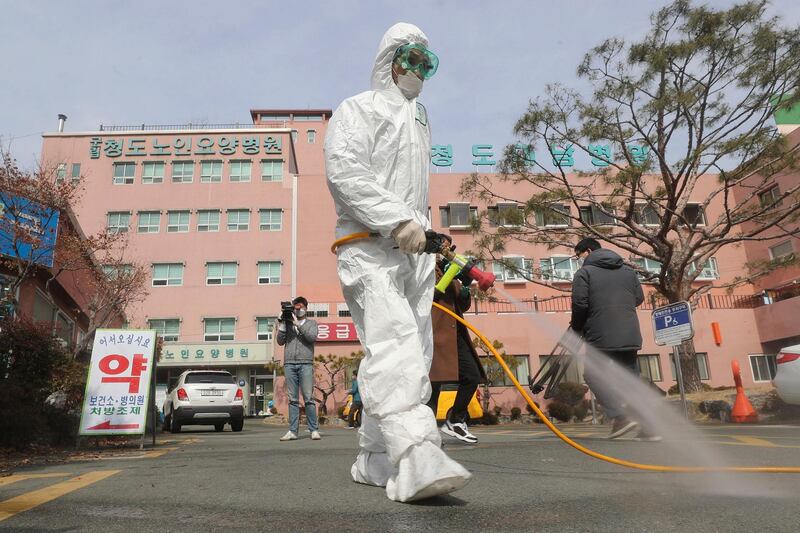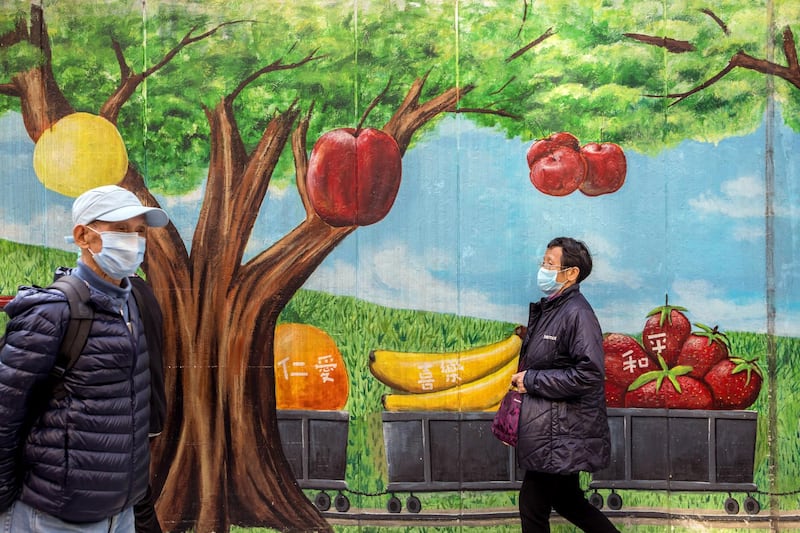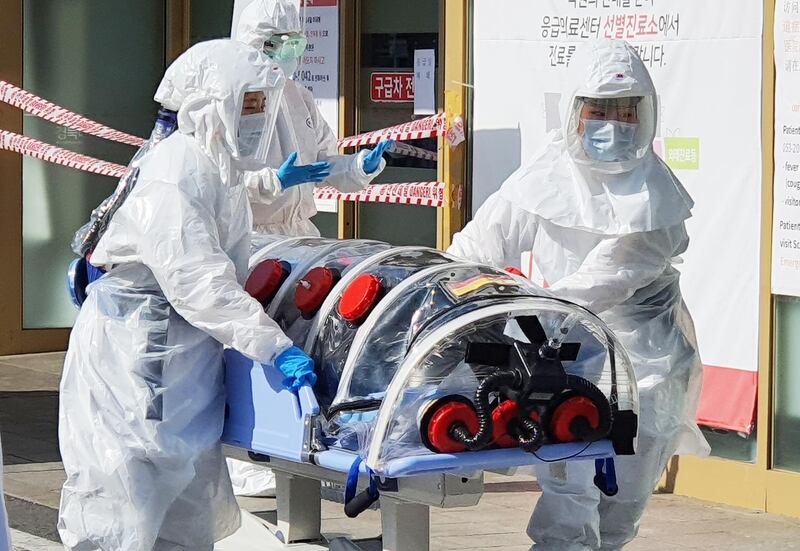Chinese leader Xi Jinping on Sunday called the coronavirus epidemic a "crisis" and the "largest public health emergency" in China's history, as he held a government meeting to co-ordinate Beijing's response to the outbreak.
"This is a crisis for us and it is a big test," Mr Xi said, adding that the country must learn from "obvious shortcomings" in the virus response.
China's measures to deal with the coronavirus outbreak have been effective but the battle is at a crucial stage, he said.
Mr Xi said the issue remained serious and complex, state television reported.
Chinese state media reported 170,000 officials attended the video conference meeting, where Mr Xi discussed epidemic prevention measures and economic development.
He said the epidemic "has the fastest transmission, widest range of infection and has been the most difficult to prevent and control".
Mr Xi's comments come as the number of virus infections hit almost 77,000 in mainland China.
He acknowledged on Sunday that the epidemic would "inevitably have a large impact on the economy and society," but he stressed the effects would be "short-term" and controllable.
The deadly respiratory virus that originated in the Chinese city of Wuhan has killed more than 2,400 people as cases and deaths continue to climb around the globe.
Turkey will close its border with Iran as a precautionary measure to halt the potential spread of the Wuhan coronavirus, or Covid-19, after Iran reported 43 cases of the virus, Turkish Health Minister Fahrettin Koca said on Sunday.
All motorways and railways were closed as of 5pm on Sunday and flights from Iran were suspended, Mr Koca said.
Pakistan also announced it was closing its border with Iran on Sunday, after Tehran announced eight deaths from the new coronavirus.
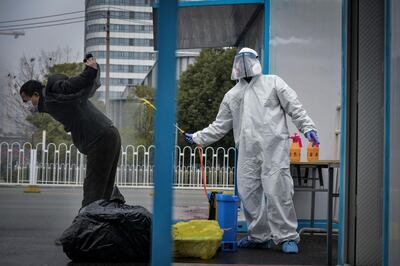
"We have closed our border with Iran because of the reports of coronavirus there," said Ayesha Zehri, a senior government official in Pakistan's south-western Balochistan province, which borders Iran.
Afghanistan has banned travel to and from Iran over fears of the coronavirus, as have Turkmenistan and Armenia. There are reports that Azerbaijan has also closed its border with Iran.
Georgia's Foreign Ministry says the country will stop air travel to Iran, and will allow Iranian tourists to leave the country.
"To prevent the spread of the novel coronavirus and protect the public, Afghanistan suspends all passenger movement to and from Iran," the office of the National Security Council of Afghanistan said on Twitter.
Iraq closed its border with Iran last Thursday, February 20.
Meanwhile, Jordan has barred entry to the country to any citizens of China, Iran and South Korea.
Israel ordered nearly 200 pupils into home quarantine Sunday after they came close to South Korean tourists carrying the coronavirus, as the premier announced a task force to manage the threat.
"Today, I will appoint a ministerial team to convene on a daily basis in order to deal with this major challenge," Prime Minister Benjamin Netanyahu said after a special meeting on the virus.
The meeting included senior security officials.
The announcement came after South Korean members of the Shincheonji Church of Jesus toured Israeli sites between February 8 and 15.
How to protect yourself against coronavirus

On their return home, 18 of them were discovered to be infected with the virus.
On Saturday, Israel refused to allow about 200 non-Israelis to leave a plane that arrived from South Korea, as part of measures against the coronavirus.
The health ministry has also ordered its citizens to observe a 14-day home quarantine if they have recently visited Japan, South Korea, mainland China, Hong Kong, Macau, Singapore or Thailand.
In Europe, Austria halted all train traffic to and from Italy following fears that a train on Sunday night had two people on board who may have been infected with the virus, authorities said.
The train was made to wait at the Brenner Pass on Italian territory.
More than 100 coronavirus cases have been confirmed in Italy with parts of the country’s north under lockdown on Sunday as authorities struggle to deal with the rise in infections.
About 50,000 people in 11 towns have effectively been placed in quarantine with nearby sporting fixtures postponed and Sunday church services cancelled. Two Italian citizens have already died from the virus.
Businesses, restaurants and schools have been closed in Veneto and Lombardy.
"The contagiousness of this virus is very strong and pretty virulent," said Giulio Gallera, a senior figure in Lombardy’s health department.
Prime Minister Giuseppe Conte has urged Italians "not to give in to feelings of panic”.
But Mr Conte said Italy would not seek a suspension of the Schengen agreement, which removes immigration controls between 26 European countries.
Coronavirus did not have much effect on Milan’s world-renowned fashion week, said Carlo Capasa, president of the Italian National Fashion Chamber.
“It doesn’t seem to me in this moment for what regards our sector, our fashion week, that there are signs of danger," Mr Capasa told AP. "We are tranquil and prudent."
The onset in Italy has led to increased vigilance in France, with Heath Minister Olivier Veran saying “it is very likely” cases will increase.
Mr Veran told Le Parisien Dimanche that more masks were being distributed and laboratories were being supplied with extra equipment to carry out more tests.
In Britain, four more cases of the new virus strain were announced.
"Four further patients in England have tested positive for Covid-19, bringing the total number of cases in the UK to 13," said Prof Chris Whitty, the chief medical officer.
"The virus was passed on in the Diamond Princess cruise ship and the patients are being transferred from Arrowe Park to specialist NHS infection centres."
In Japan, the Diamond Princess, which is docked and quarantined in Yokohama, reported 57 new infections.
A Japanese man in his eighties, who was on the cruise ship, died from pneumonia. He was the third death from the Diamond Princess.
In mainland China, the government officially confirmed 648 new cases across the country on Sunday, and 97 deaths.
Wuhan Municipal Government in Hubei province said it would continue to restrict movement in the city.
The Chinese Communist Party has ordered financial benefits and subsidies for healthcare professionals and medical workers in Hubei province, including the doubling and tripling of salaries, state broadcaster CCTV reported.
One prominent death was that of Huang Wenjun, deputy chief physician of the Department of Respiratory Medicine at Xiaogan Central Hospital in Hubei province.
In Hong Kong, the city's government said a Hong Kong resident, 77, who comes from Hubei's capital city Wuhan, died after contracting the virus.
South Korea’s President Moon Jae-in on Sunday said he was putting his country on its highest alert for infectious diseases.
Mr Moon ordered officials to take “unprecedented, powerful” steps to fight a soaring viral outbreak that has infected more than 600 people in the country, mostly in the past few days.
At a G20 meeting for finance ministers and central bank governors in Riyadh, Saudi Arabia, the International Monetary Fund's managing director, Kristalina Georgieva, told an audience that the coronavirus puts global economic recovery at risk.
"The projected recovery is fragile," Ms Georgieva said. "The Covid-19 virus, a global health emergency, has disrupted economic activity in China and could put the recovery at risk."
